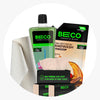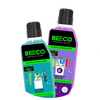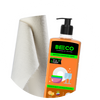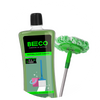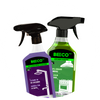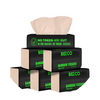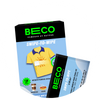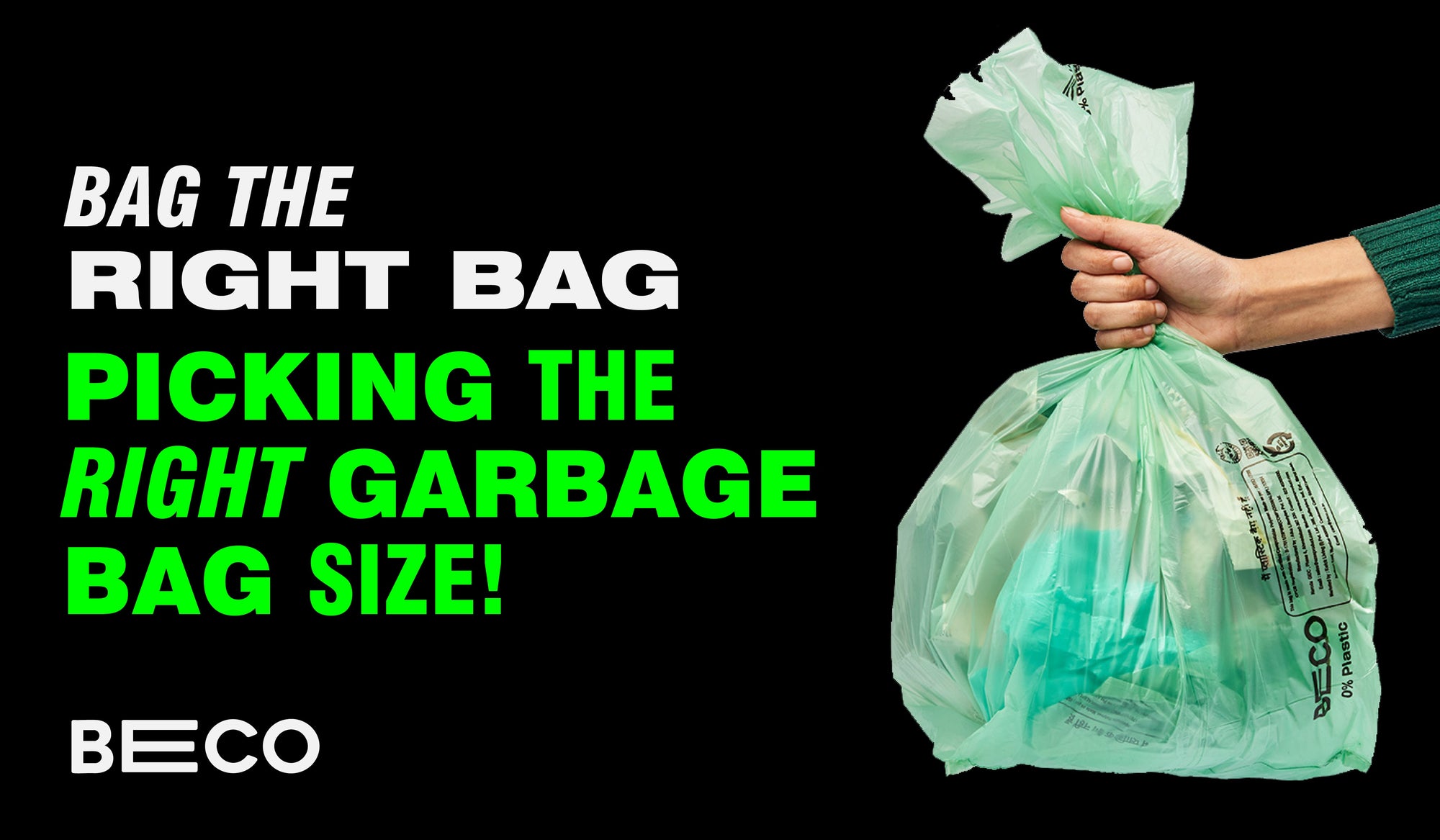Ever Had a Tissue Betray You?
The story of tissue papers has pretty much always been the same frustrating one. Tearing itself mid-sneeze, leaving tiny paper scraps all over your hands, face, and nose, or feeling like sandpaper on your cheeks. Who knew something so small could make you this mad? And yet somehow, we’ve never really thought about changing it.
But here’s the new talk of the town. Bamboo tissue paper promises a subtle revolution; softer, stronger, and a little kinder to both you and the planet. But is bamboo tissue paper actually the hero it claims to be? Or is it just clever marketing dressed in green? Let’s pull this apart, quite literally and figuratively.
Why Are We Even Talking About Bamboo Tissue Paper?
Because tissues aren’t just tissues. They’re everywhere: in your bathroom, your bag, your gym kit, your car’s glovebox. On average, a person uses over 700 tissues a year. Multiply that by millions, and suddenly the material choice matters.
Regular tissue paper: Made from virgin tree pulp. Translation: trees cut down, water used, chemicals added.
Bamboo tissue paper (or tissue paper from bamboo): Made from, you guessed it, bamboo. And bamboo isn’t your average plant; it grows crazy fast, doesn’t need pesticides, and regenerates without replanting.
So, when we ask whether bamboo tissue paper is worth it, we’re really asking: Do we want our tissues to come at the cost of forests, or can we switch to something sustainable with even better comfort?
Soft Like Clouds or Scratchy Like Sand? Let’s Talk Texture
Let’s be real: if a tissue doesn’t feel good, nobody cares how eco-friendly it is. Softness is non-negotiable.
Regular tissue paper: It can be soft in most cases, sure, but it often goes through heavy chemical bleaching to get that bright white look and silky touch.
Bamboo tissue paper, or simply tissue paper made from bamboo): Surprisingly soft without as many harsh processes. Bamboo fibers are naturally smoother, which means you get that “cloud-on-your-skin” feel without unnecessary chemicals.
Think of it this way: blowing your nose with regular tissues might feel fine most of the time. But when you’ve got a cold and you’re using them 20 times a day? Suddenly, that extra softness matters.
If you’re curious, you can try Beco’s Bamboo Facial Tissues; they’re soft, absorbent, and kind to your skin.
Is Bamboo Really Greener, or Just Clever Marketing?
Here’s where things get interesting. Eco-claims are everywhere these days, and bamboo isn’t just a buzzword; it’s backed by facts.
The Eco Receipts: From Farm to Flush
-
Bamboo can grow up to 3 feet a day.
-
It regenerates after harvesting, so no replanting is required.
-
It uses 30% less water than trees.
-
No pesticides, no fertilizers; just raw, natural growth.
Compare that to trees, which take 20–50 years to mature. Once cut, they’re gone. Forest ecosystems suffer, wildlife loses habitat, and the cycle takes decades to repair.
Carbon Footprints Don’t Lie
-
Bamboo absorbs 35% more CO₂ than an equivalent stand of trees.
-
It releases 30% more oxygen.
-
And when turned into bamboo tissue paper, it’s fully biodegradable and compostable.
So, while some products slap a green label on for hype, bamboo tissue paper actually lives up to the eco-friendly talk.
If you’re on a mission to reduce your footprint without sacrificing comfort, switching is one of the simplest everyday swaps you can make. In fact, check out Beco’s Bamboo Tissues Collection for sustainable options.
Strength Test: Will It Tear, Crumble, or Survive the Sneeze?
Nobody wants a tissue that disintegrates mid-use. Strength is where people are often skeptical of bamboo. But here’s the deal:
Regular tissues: Decent strength, but can shred easily when wet.
Bamboo tissues (aka tissue paper from bamboo): Surprisingly tougher. Bamboo fibers are longer and stronger, which means they hold up better, even if damp!
Imagine wiping a spill on your desk. Regular tissues? Shredded mess. Bamboo? Fewer sheets, job done. That’s durability that pays off.
For example, Beco’s Ultra Soft Baby Tissues are designed strong enough for messes, yet gentle enough for a newborn’s skin. That balance of soft and durable is where bamboo really shines.
The Price Tag Dilemma: Is Bamboo Worth the Extra Bucks?
Here’s the catch: bamboo tissue paper often costs slightly more. But before you write them off, think about this:
-
You actually use fewer sheets because they’re stronger.
-
You’re paying not just for softness, but for sustainability.
-
And honestly, the price gap isn’t as wide as you think.
A regular pack of tissues might save you a few rupees today. But alternatives like the Beco Bamboo Toilet Paper saves water, reduces deforestation, and keeps chemicals out of your home. That’s long-term value money can’t always measure.
Fun Fact Break: Tissue Tales You Won’t Believe
-
The average person blows their nose over 100 times a year. That’s a lot of tiny battles with flimsy paper.
-
Tissue paper was first invented in China around the 6th century, and yes, even then, people complained about it tearing.
-
Bamboo fibers can be up to 3x stronger than tree pulp fibers, which is why modern tissue paper made from bamboo holds together better even when wet.
-
Globally, billions of trees are cut down annually just to make paper products; tissues included.
Everyday Swaps That Add Up
Switching to bamboo tissues doesn’t mean you overhaul your life overnight. It’s about small swaps that stack up big over time.
-
Replace your kitchen napkins with Bamboo Serving Napkins.
-
Swap your standard toilet rolls for Beco Bamboo Toilet Paper.
-
Keep a pack of bamboo tissue paper in your car or office.
-
And while you’re at it, don’t forget the waste disposal. Pair your tissues with eco-friendly disposal using Beco’s Compostable Garbage Bags that comes in both medium and larger sizes.
Why Should You Dump Regular Tissues for Bamboo Ones?
Let’s recap.
-
Softness? Bamboo tissue paper passes with flying colors.
-
Eco-friendliness? Clear win for bamboo; fast-growing, chemical-free, and low footprint.
-
Durability? Bamboo fibers are stronger and longer lasting.
-
Price? Negligibly higher, but worth it when you consider the bigger picture.
At the end of the day, tissues are more than just a convenience. They’re part of our daily routine. And switching to bamboo tissue paper is one of the easiest eco-friendly swaps you can make without sacrificing comfort.
So next time you stock up, skip the scratchy, tree-cutting tissues and reach for the sustainable softness of bamboo. Your skin will thank you. The planet will too.
Explore all of Beco’s Eco-Friendly Options and make the switch today.

